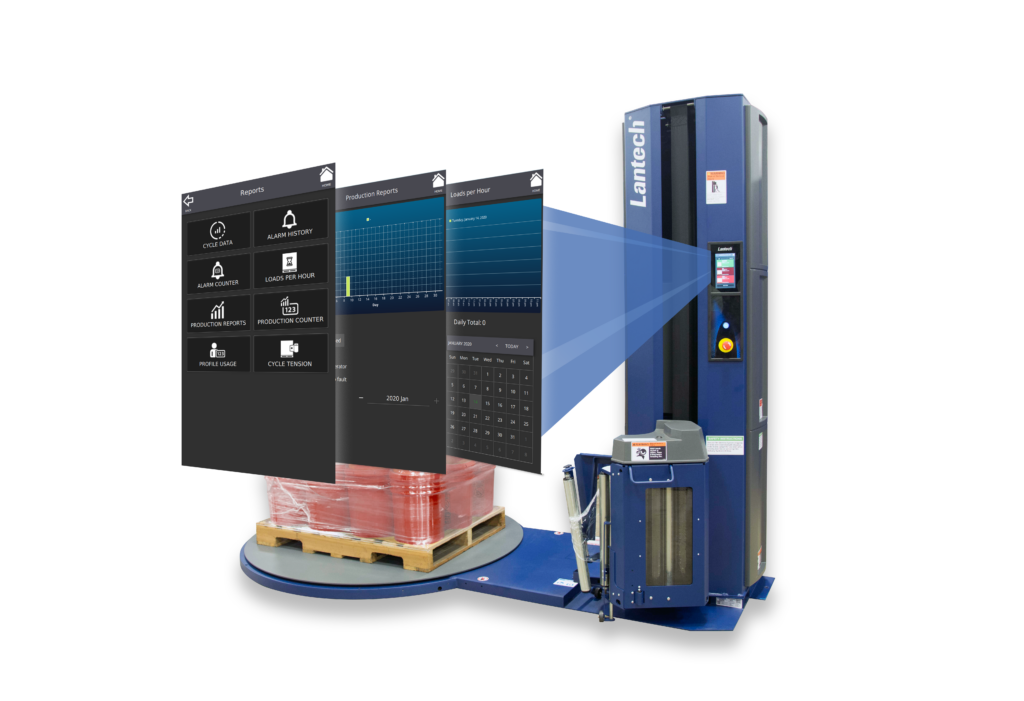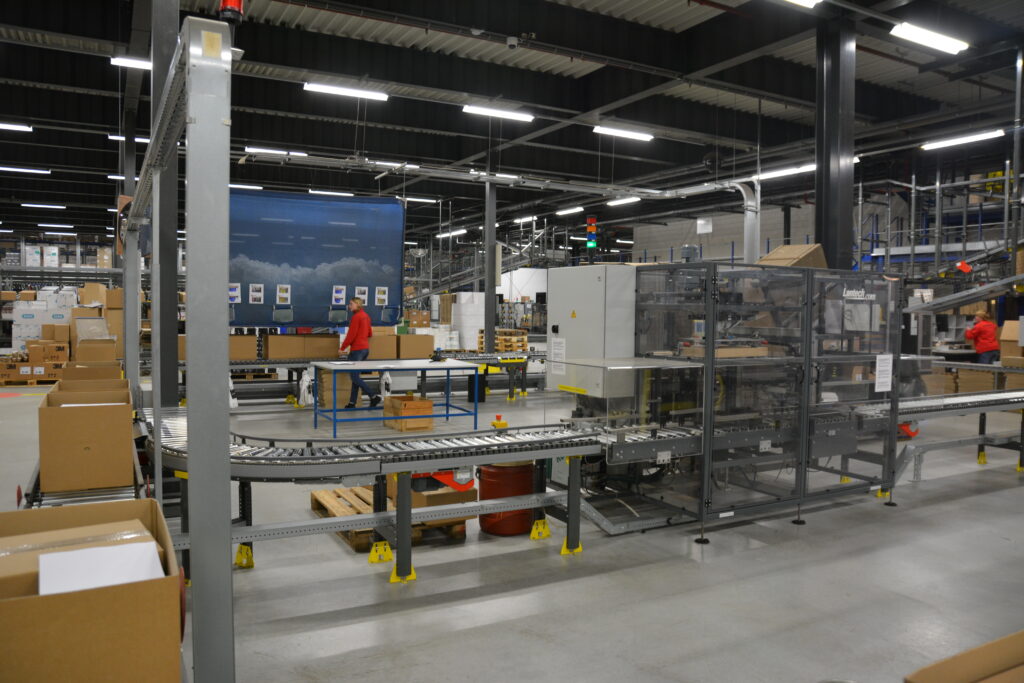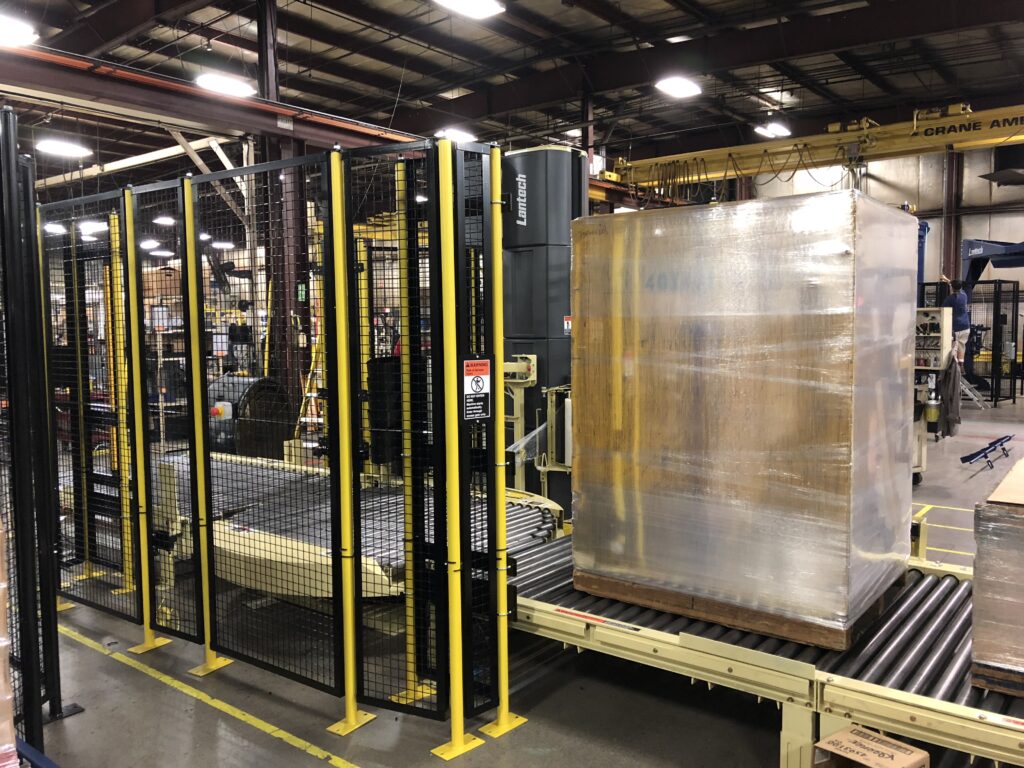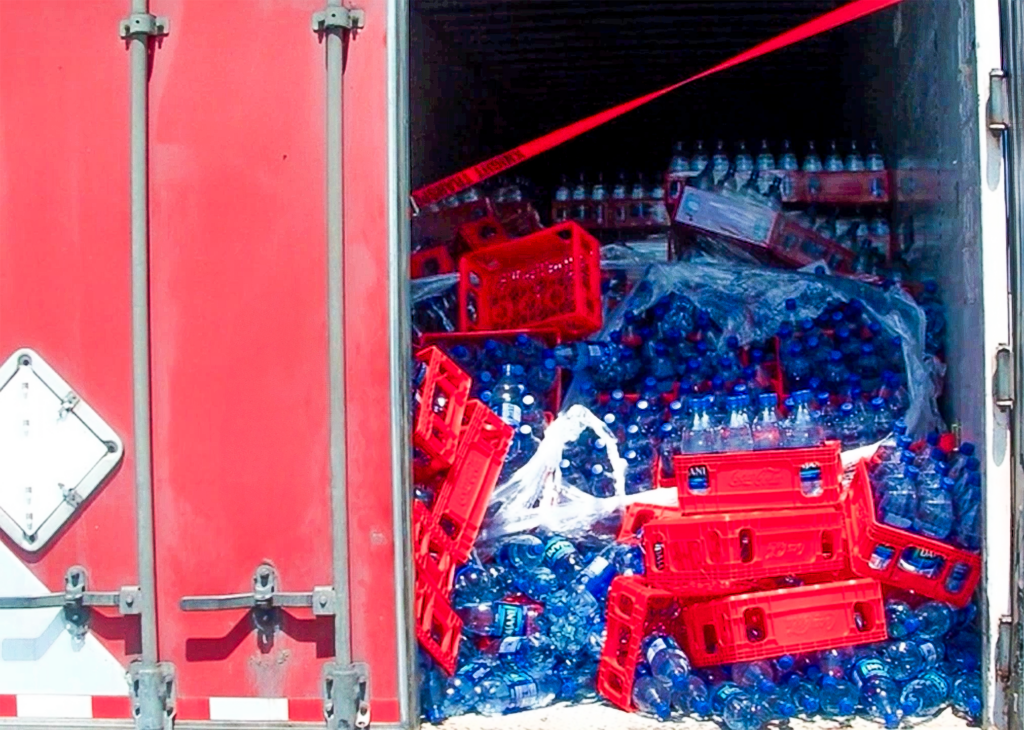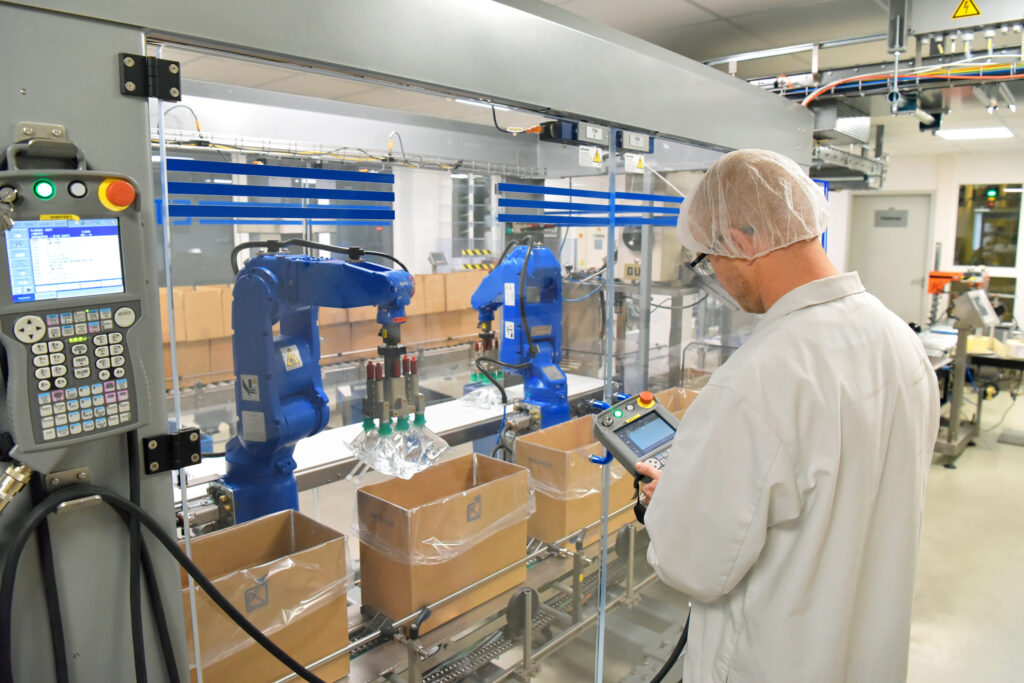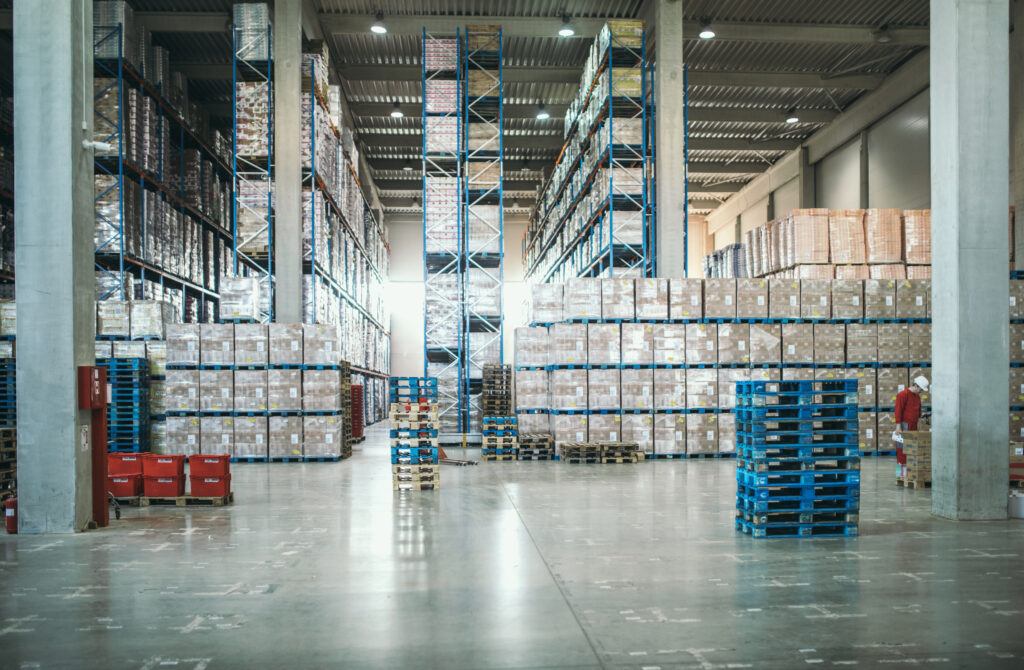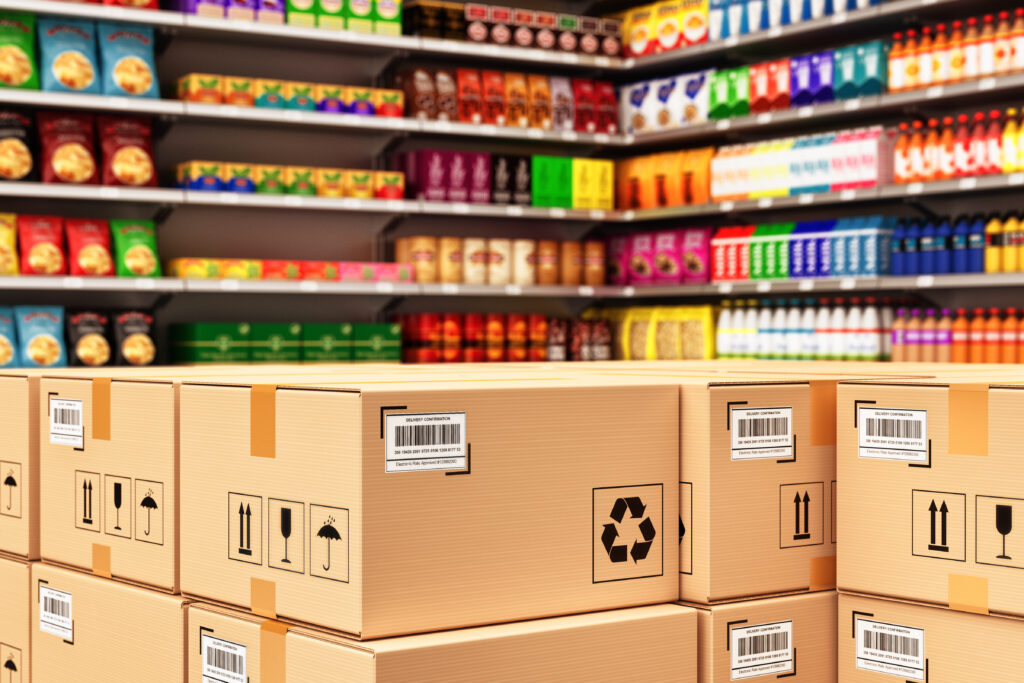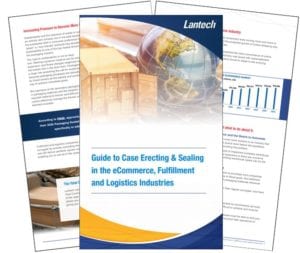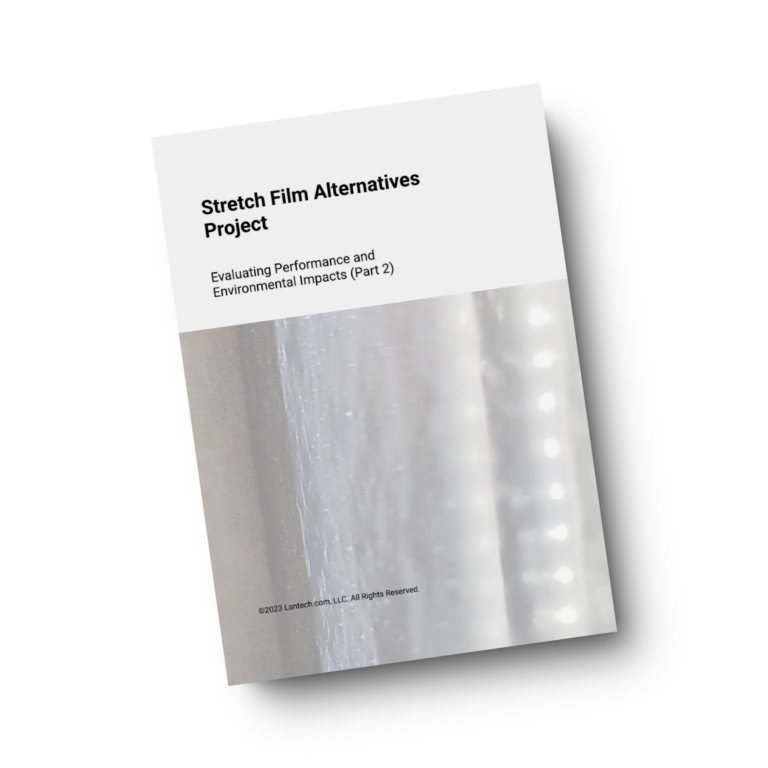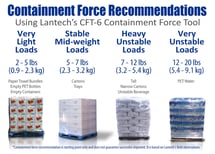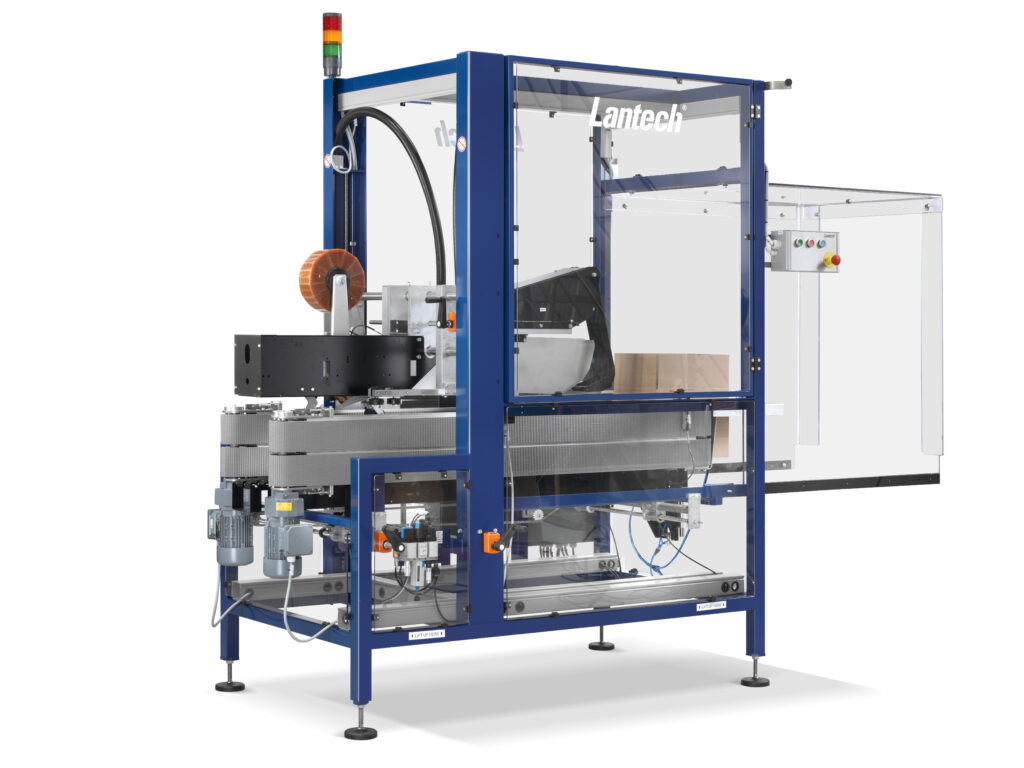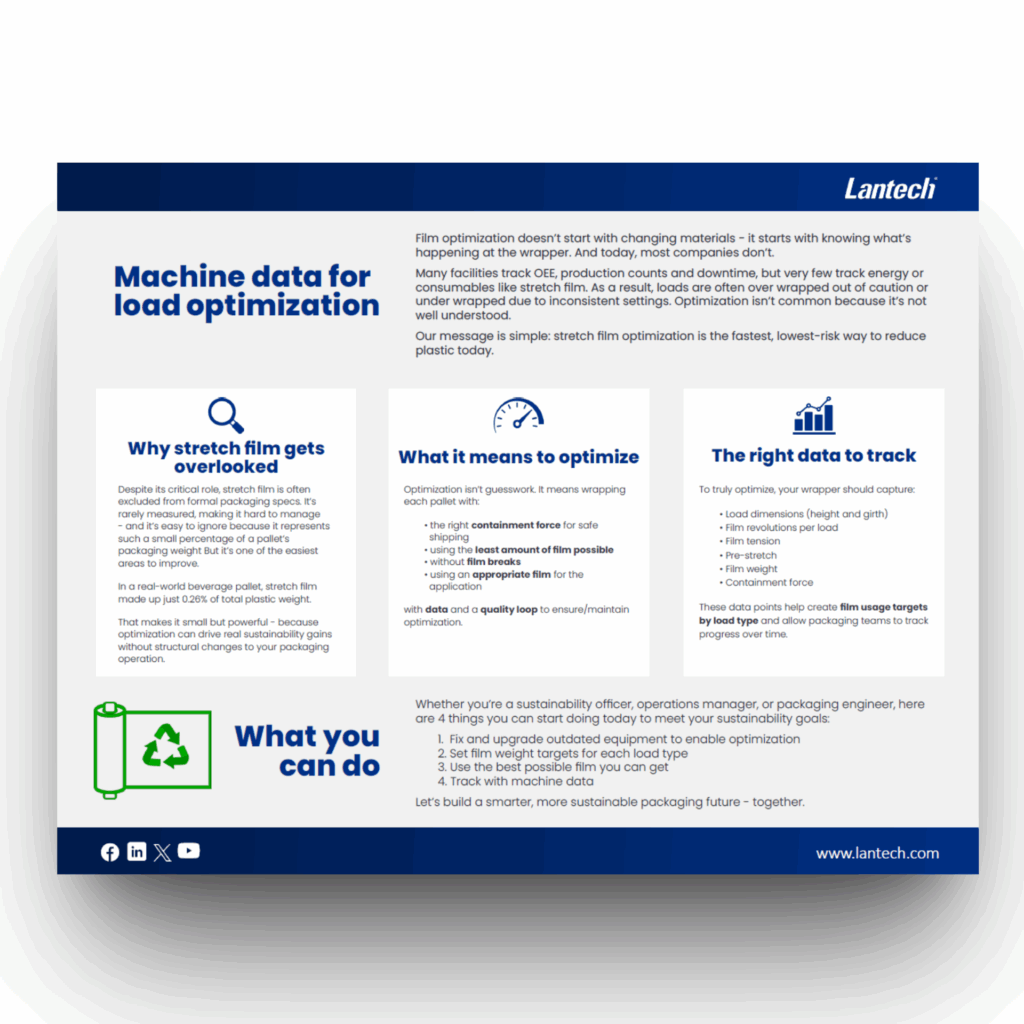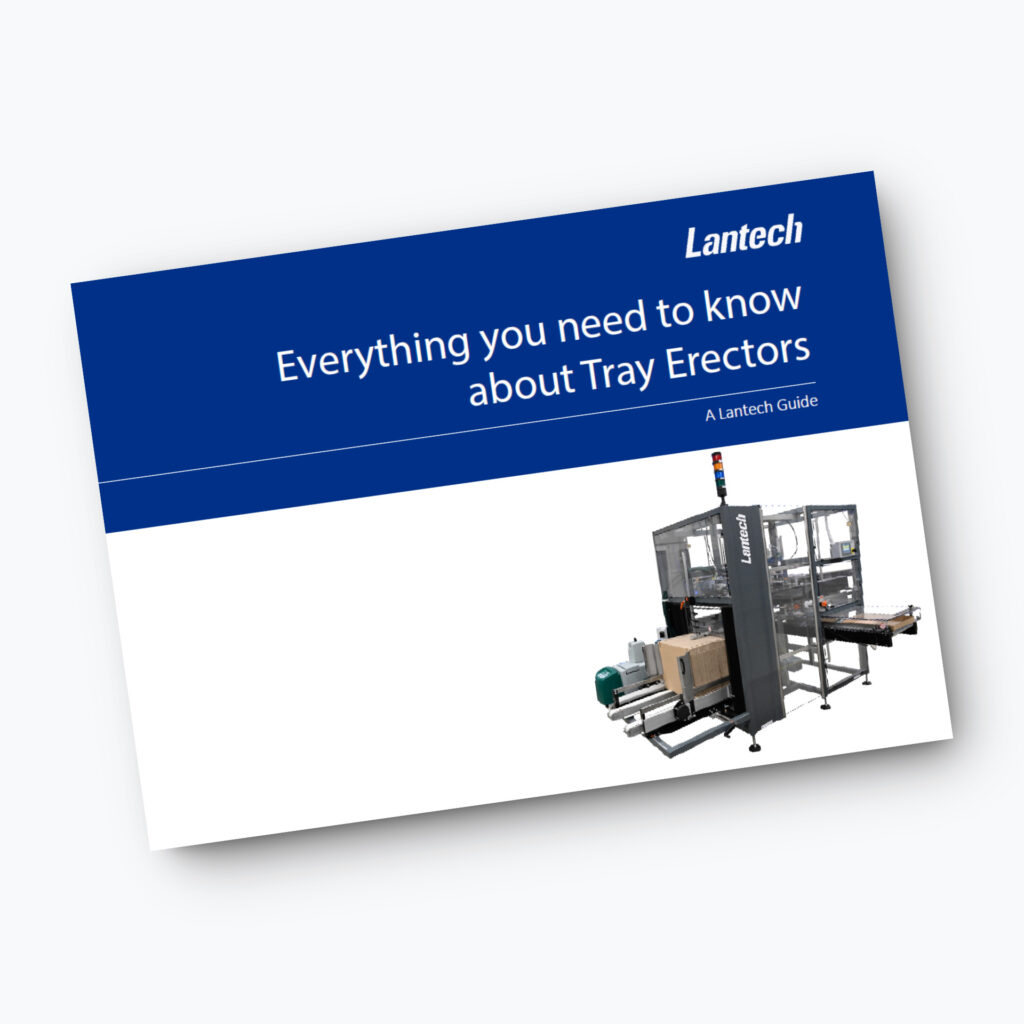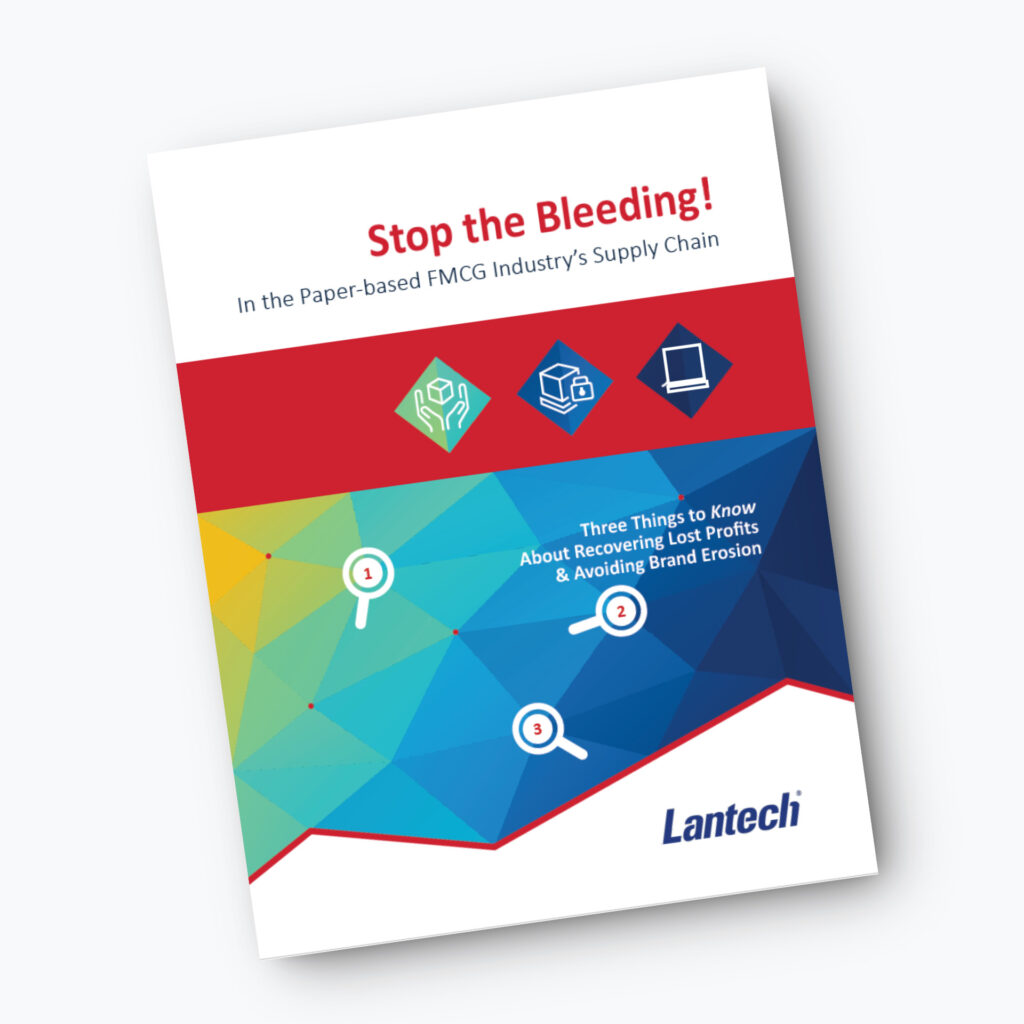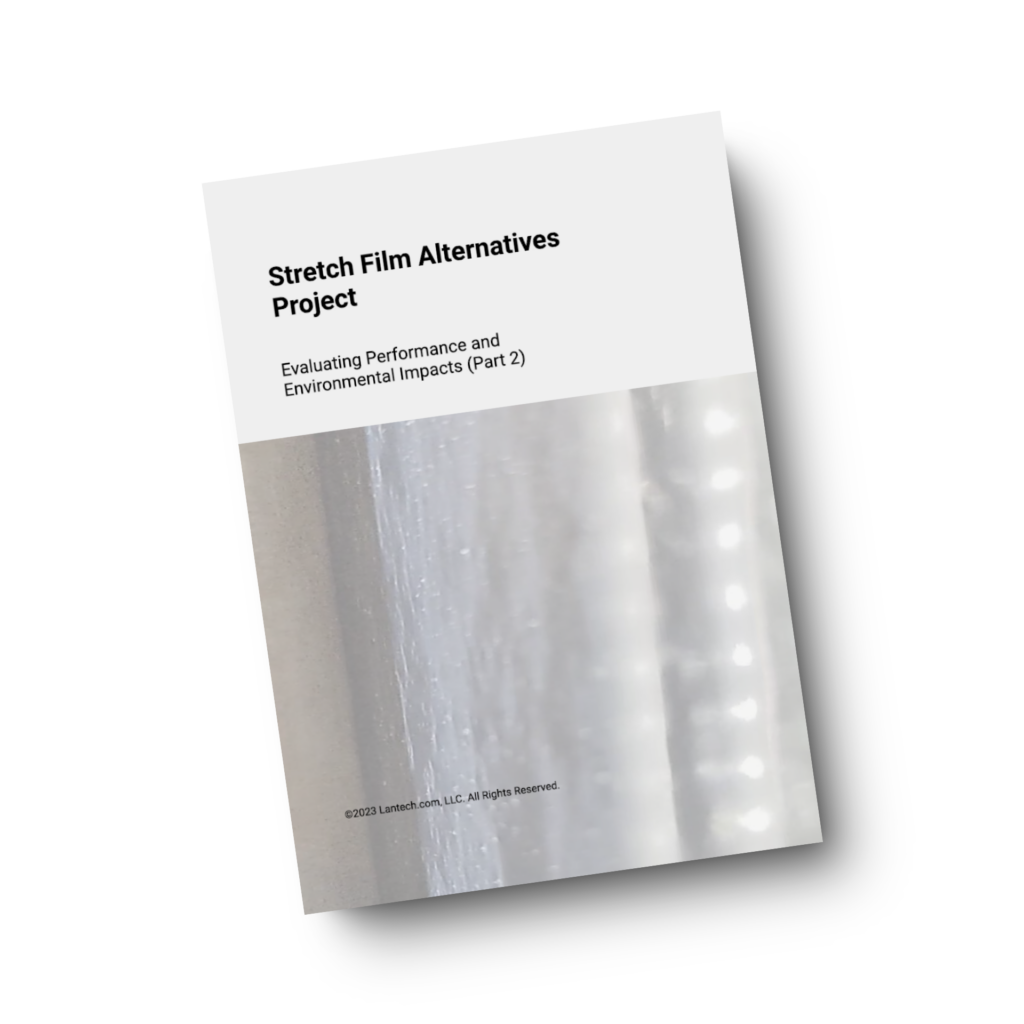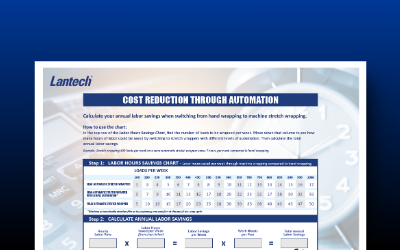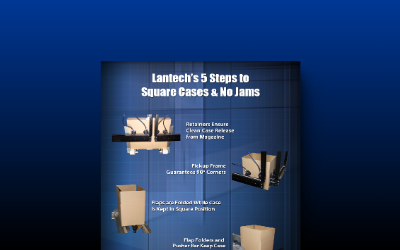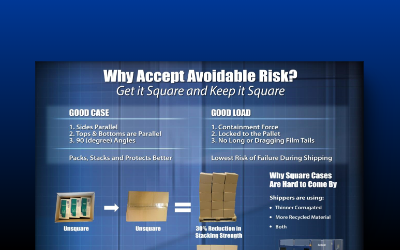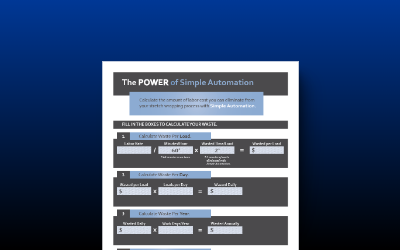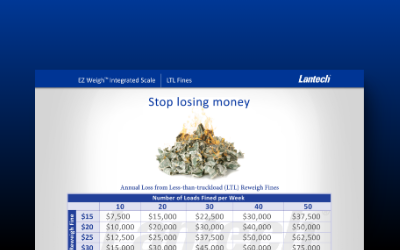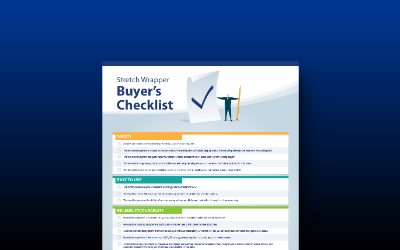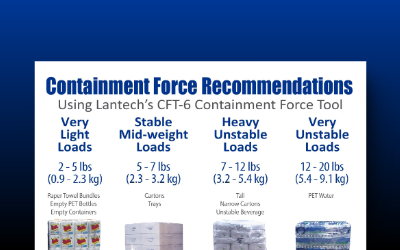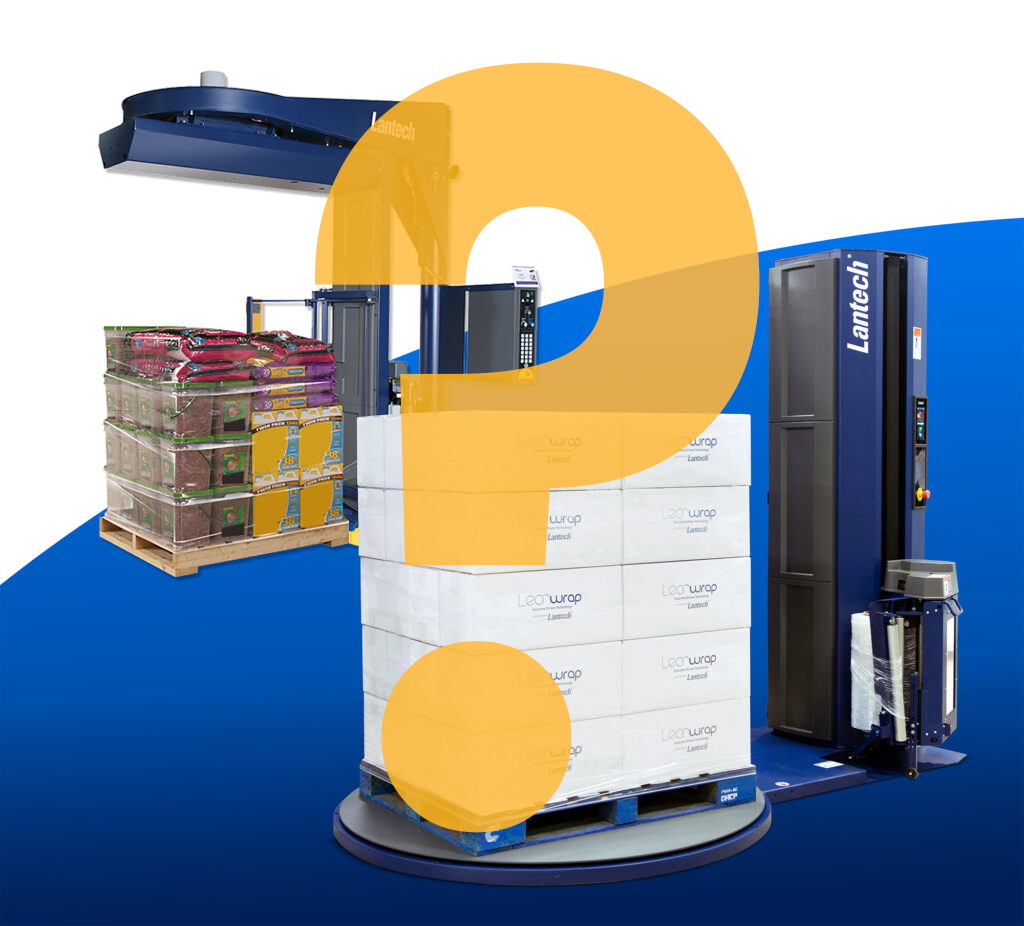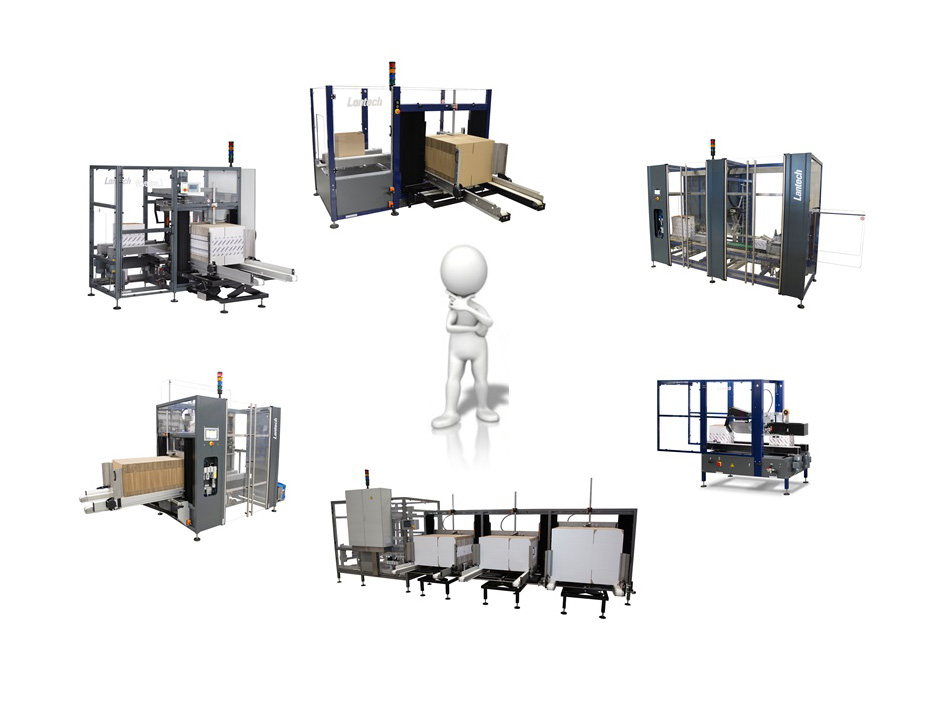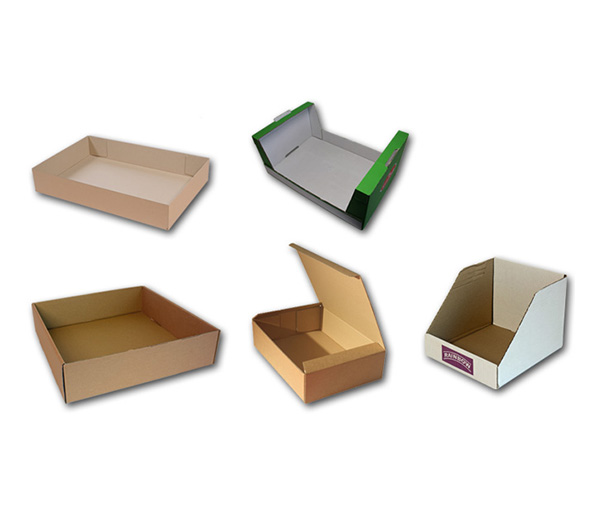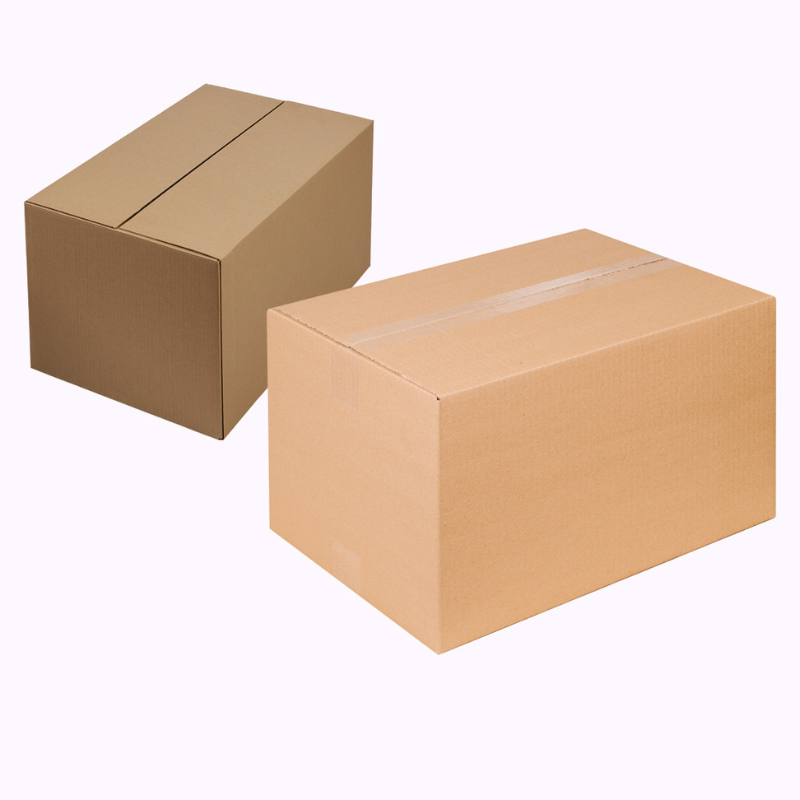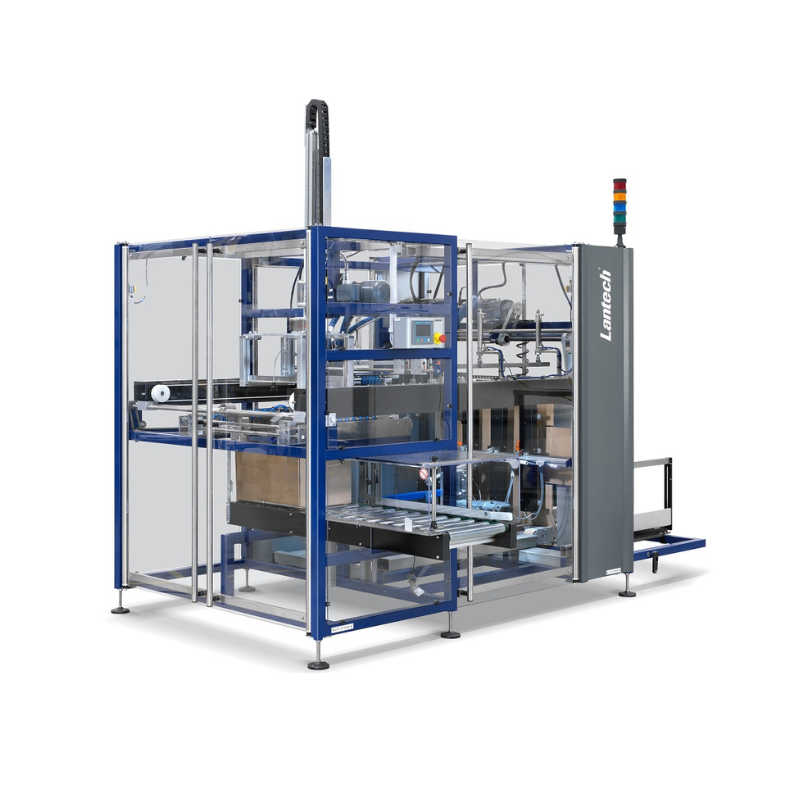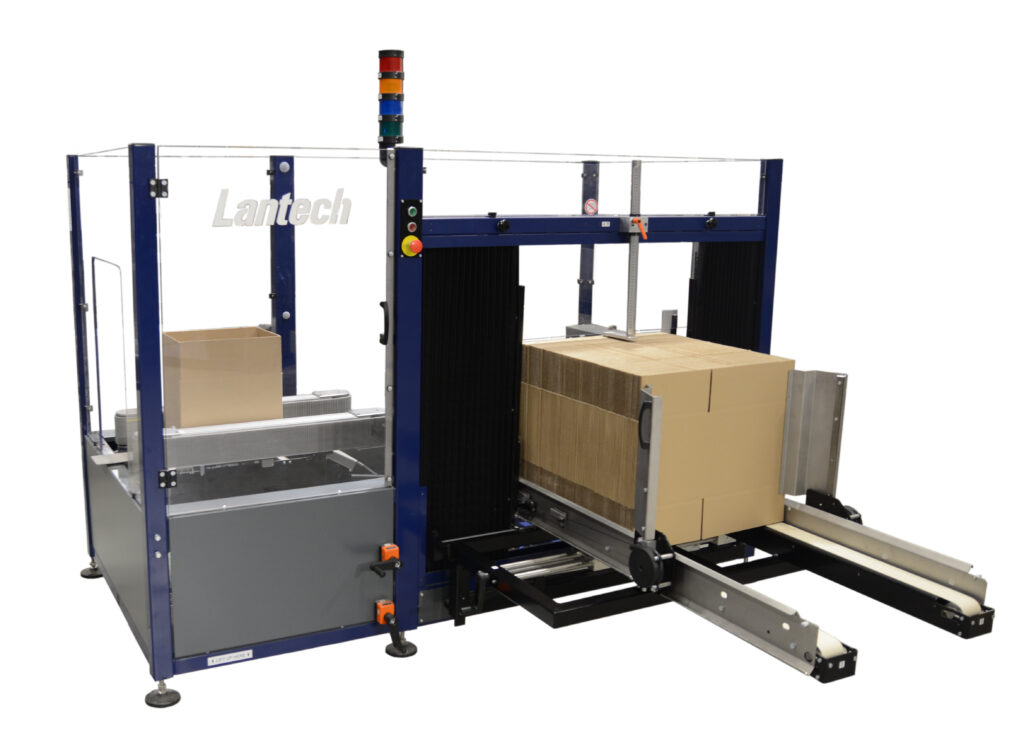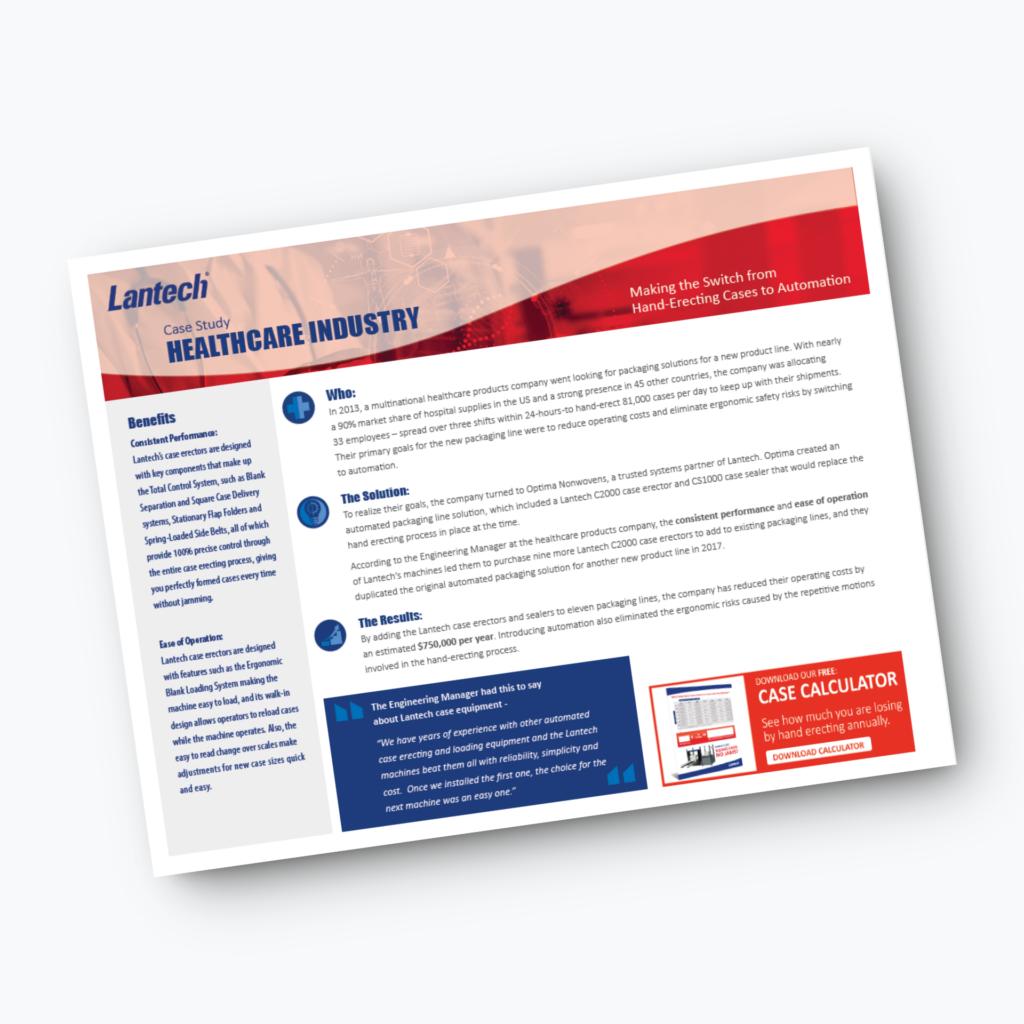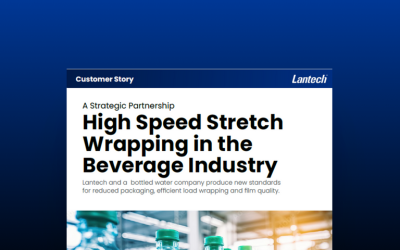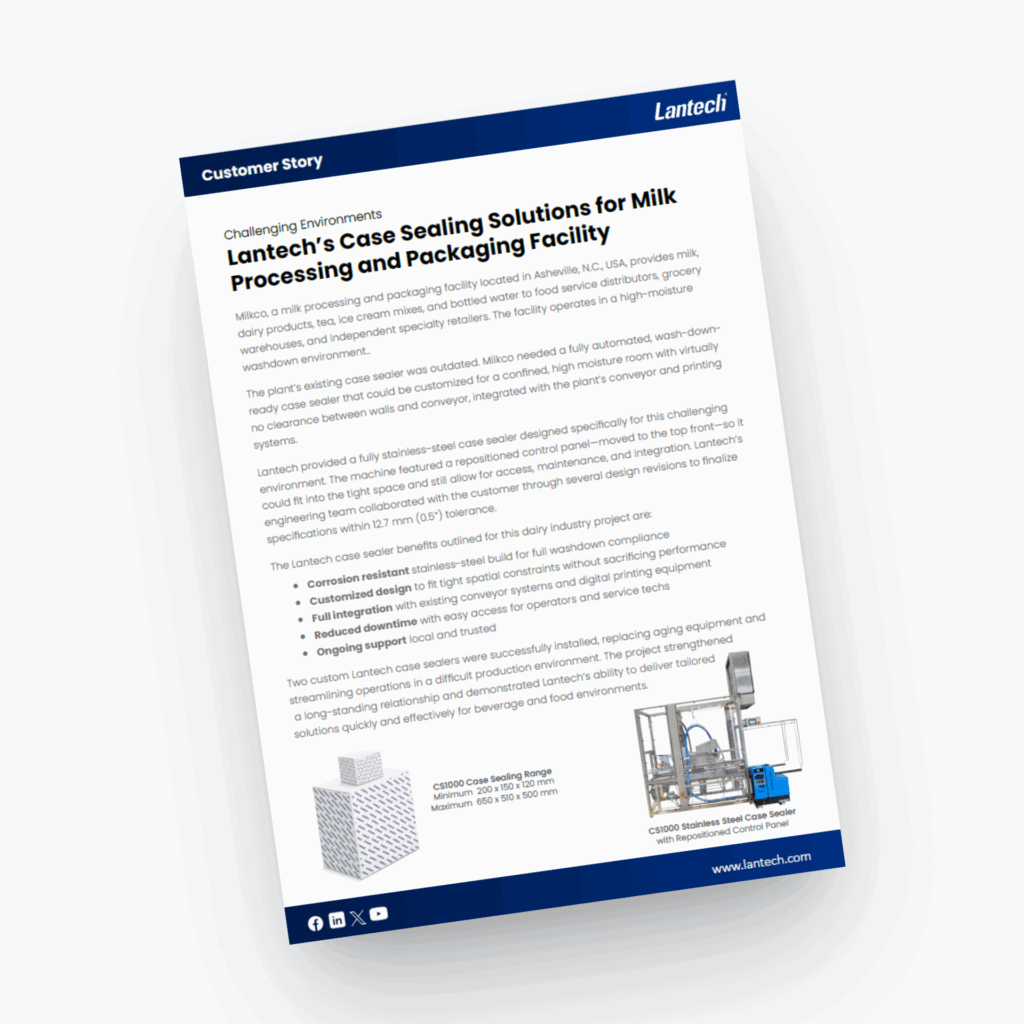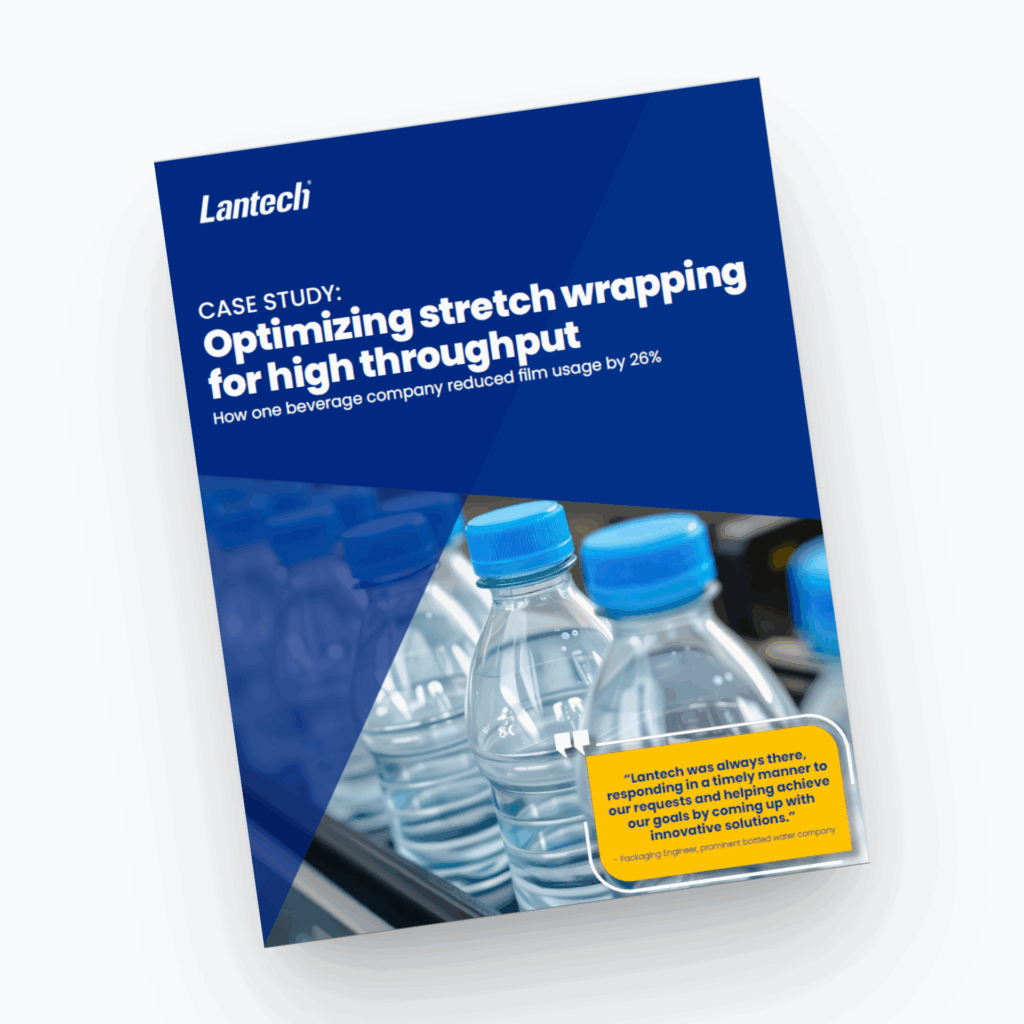Resource Library
All Featured
User-Friendly Stretch Wrappers: Designed for Real-World Operators
In theory, every stretch wrapper operator is fully trained, follows best practices, […]
Learn MoreTop e-Commerce Packaging Automation Solutions That Improve Speed, Reduce Labor, and Control Costs
E-commerce fulfillment operations are under constant pressure. Order volumes continue to rise, […]
Learn MoreEssential Safety Features to Look for in Stretch Wrapping Equipment
Stretch wrapping equipment plays a critical role in warehouse and manufacturing operations. […]
Learn MoreLoad Containment: What It Is, How It’s Measured, and Why It Matters
Load containment is one of the most frequently discussed—and least consistently defined—concepts […]
Learn MoreContainment ROI for the Healthcare and Pharmaceutical Industry: How Optimized Stretch Wrapping Protects Sensitive Products and Reduces Total Packaging Costs
In the healthcare and pharmaceutical sector, pallet stability is not simply a […]
Learn MoreContainment ROI in Logistics & Distribution: How Optimized Stretch Wrapping Cuts Costs and Prevents Damage Across Mixed Loads
Logistics and distribution environments face some of the highest pallet failure rates […]
Learn MoreContainment ROI for the CPG Industry: How Optimized Stretch Wrapping Prevents Product Damage and Reduces Film Costs
Consumer Packaged Goods (CPG) manufacturing environments operate at the intersection of high-speed […]
Learn MoreContainment ROI in the Beverage Industry: How Optimized Stretch Wrapping Reduces Film Use and Load Damage
In the beverage industry—whether water, soda, juice, or alcoholic drinks—safe, cost-effective palletization […]
Learn MoreMost popular resources
Latest News
Lantech Expands Louisville Manufacturing to Include CS300 and CS1000 Case Sealers
Louisville, KY – November 4, 2025 – Lantech, a global leader in […]
Learn MoreLantech Introduces the Next‑Generation Semi‑Automatic Stretch Wrappers – SL400 and SL400LT
Louisville, KY – September 29, 2025 – Lantech, a global leader in […]
Learn MoreStill Setting the Standard: Lantech Unveils Cutting-Edge Packaging Innovations at Drinktec and PackExpo
Louisville, KY – Lantech, a trailblazer in the packaging industry, is thrilled […]
Learn MoreLantech demonstrates case handling for the bakery and confectionery industry at IBA
Malden, NL — Lantech, manufacturer of end-of-line packaging machines, will be exhibiting […]
Learn MoreGuides
4 Ways to Impact Sustainability with Film Optimization
Stretch film optimization is the fastest, lowest-risk way to reduce plastic today. In this guide, we highlight a few ways you can use film optimization to impact your sustainability efforts.
Read MoreTray Erector Buying Guide
A seamless packaging process is of invaluable value to companies striving for efficiency, speed, and consistency in their production. A tray erector can have a significant impact on your operational success.
Read MoreStop the Bleeding In the Paper-Based FMCG Industry’s Supply Chain
Reductions in primary and secondary packaging materials and ever-present cost reduction pressures are making most products more difficult to wrap. Fragile or delicate products like paper-based, fast-moving consumer goods (FMCG) are especially hard to wrap effectively.
Read MoreStretch Film Alternatives White Paper
Download this white paper to learn more about our evaluation into every currently stretch wrap alternative.
Read MoreCharts, Checklists And Calculators
Calculator: Cost Reduction Through Automation
Calculate your annual labor savings when switching from hand wrapping to machine stretch wrapping.
DownloadCalculator: Automatic Case Erector Savings
Calculate your potential annual savings when switching from hand-erecting cases to automatic case erecting.
DownloadChart: 5 Signs of a Square Case
Learn five signs of a perfectly square case with this chart and let it serve as a reminder for the importance of square cases in pallet loading.
DownloadChart: Why Square Cases are Important
Find out why square cases are so hard to come by and how to identify one so you don’t have to take avoidable risks.
DownloadCalculator: The Power of Simple Automation
How much time and money are you wasting? Our calculator estimates the amount of labor cost you can eliminate from your stretch wrapping process with Simple Automation.
DownloadChart: Annual Loss From LTL Reweigh Fines
What does this mean for you? Download this chart to find out!
DownloadChecklist: Buying a New Stretch Wrapper
Run through the important safety, useability, reliability and effectiveness aspects of buying a new stretch wrapper with this checklist.
DownloadChart: Containment Force Recommendations
Your pallets face a rough ride as they ship to your customers. How they look when they arrive is an important part of your brand. Make sure they’re wrapped tight enough to survive the trip by checking their containment force.
DownloadQuizzes
Which Semi-Automatic Stretch Wrapper is right for you?
Take our short quiz to find out. Based on your answers, you will receive a suggestion as to which stretch wrapper would best suit your needs.
What kind of Case Erector fits your needs?
This short quiz can help you identify the type of case erecting machine that would work best for your facility.
Which Tray Erector best suits your situation?
Looking to optimize your tray erecting process? Take this short quiz to see the recommended tray erector machine to fit your needs.
Hotmelt versus tape calculator
Find out your payback period for choosing Hotmelt closure instead of Tape […]
Tray productivity calculator
Manually erecting trays takes time, adds labor costs, and can slow down […]
Case savings calculator
If you’ve been considering a case erector for your production line, here […]

